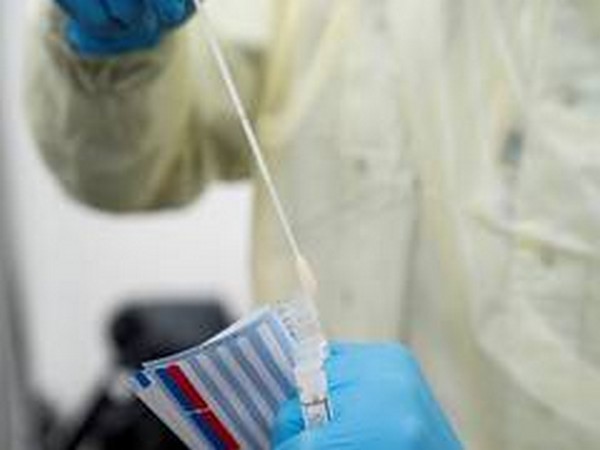CSIR researchers hope to begin supplying COVID-19 test kits for faster
Current polymerase chain reaction (PCR) tests for the presence of severe acute respiratory syndrome coronavirus 2 (SARS-CoV-2) in nasal and throat swabs involve two steps.

- Country:
- South Africa
The Council for Scientific and Industrial Research (CSIR) says it can make enough enzyme for one billion chemical reactions that can be applied in COVID-19 testing, and researchers hope to begin supplying reagents for a faster, one-step test by the end of the year.
Current polymerase chain reaction (PCR) tests for the presence of severe acute respiratory syndrome coronavirus 2 (SARS-CoV-2) in nasal and throat swabs involve two steps.
Firstly, the virus’s genetic material, its RNA, must be converted to DNA using an enzyme called reverse transcriptase, in a reaction called RT-PCR.
Secondly, PCR is then used to make thousands of copies of the DNA, until there are enough of these tiny molecules to detect.
If the test detects the targeted DNA copies, there must have been viral RNA in the sample, hence the test is positive.
“The CSIR has already established a highly efficient technology to produce the enzyme needed for the second step,” says senior researcher Dr Lusisizwe Kwezi.
“This enzyme is known as DNA Taq polymerase, and just three grams of the protein, produced in E. coli bacteria in as little as three days, is enough for a billion PCR reactions,” Kwezi said.
This does not equate to COVID-19 tests for a billion people because, among other technical reasons, diagnostic tests must be carefully repeated several times for each patient to ensure accurate results. But it does mean that a huge amount of this important reagent is available locally and affordably.
Another benefit of the reagent mix is that it contains a special antibody that stops the Taq enzyme from working when it is not needed. This makes it more specific when it has to amplify DNA during the PCR reaction, and more robust for potential future point-of-care testing devices.
Kwezi said earlier this month, the CSIR delivered a 3 g batch to local company CapeBio Technologies (Pty) Ltd, which has licensed and commercialised the technology.
It will be rolled out to support the national testing effort as soon as CapeBio gets approval from the South African Health Products Regulation Authority (SAHPRA).
Thanks to funding just awarded through the Strategic Health Innovation Partnership – a partnership between the South African Medical Research Council and the Department of Science and Innovation (DSI) - the CSIR and CapeBio are now working to add the reverse transcriptase enzyme to the mix as well so that the two-step COVID-19 PCR test can be done in a single step. This will reduce the turnaround time of tests.
The antibody will be produced in plants rather than in E. coli, and Kwezi says the resulting one-step kit could be ready for national roll-out within six months, pending SAHPRA approval.
He said local availability of large amounts of such affordable ‘plug-and-play’ reagents, which also allow for faster results delivered to patients, will be critical in managing the pandemic in the long-term.
(With Inputs from South African Government Press Release)
ALSO READ
My taxable income plummeted to Rs 680 in 2021-22 due to Covid-19 losses: BJP's Chandrasekhar
Report of workshop on COVID-19 vaccine strain updates held by ICMRA-WHO published
**Updated Headline:** **Secure Your COVID-19 Vaccine Certificate: A Comprehensive Guide to Download from Co-WIN, UMANG, and Aarogya Setu**










